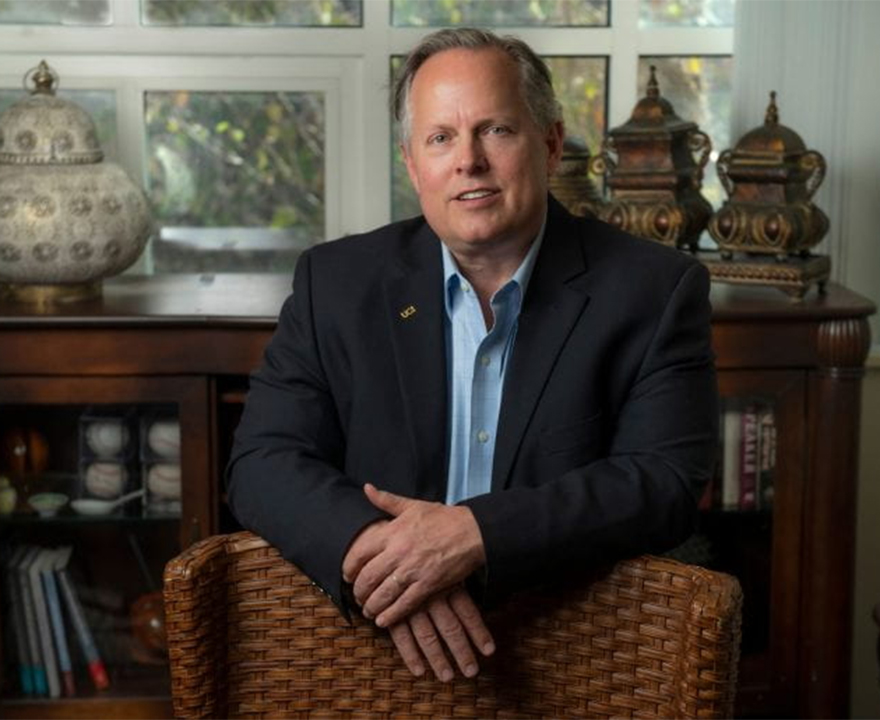What’s next: the US Supreme Court

What’s next: the US Supreme Court
- March 25, 2022
- Tony Smith, UCI political science and law professor, weighs in on nominee Ketanji Brown Jackson and the road ahead
On Feb. 25, President Joe Biden nominated U.S. Circuit Judge Ketanji Brown Jackson to the Supreme Court. If confirmed, she would replace retiring Justice Stephen Breyer and become the first Black woman seated on America’s highest court in its 233-year history.
Charles Anthony Smith, UCI professor of political science and law, practiced law for almost 20 years before earning a Ph.D. in political science. He has published seven books and more than 30 articles on the history and politics of the Supreme Court. Smith is an expert on the confirmation process, the politics and strategy behind the choice of nominee, and the impact new justices have on the Supreme Court – the perfect person to answer questions about what’s next.
What factors contributed to President Biden choosing Ketanji Brown Jackson as his nominee to fill the upcoming vacancy on the Supreme Court?
One of the early promises President Biden made as a candidate was to appoint an African American woman to the Supreme Court. He chose Judge Jackson over the many other highly qualified people who met his initial criteria for a host of reasons. Not only does Judge Jackson have outstanding credentials from an education and experience standpoint, but she also brings a unique voice as a former public defender and vice chair of the U.S. Sentencing Commission. Her top-flight legal education and the fact that she clerked for the Supreme Court are enhanced by her lengthy time on the bench and actual trial experience. The president perhaps picked her because her impeccable credentials suggest that any critique is driven by partisan or worse instincts.
Why is Jackson qualified for this role?
She checks off all the boxes we have come to expect from a Supreme Court nominee, including an Ivy League education with an outstanding academic record. She graduated magna cum laude from Harvard University and cum laude from Harvard Law and was editor of the Harvard Law Review. Keeping with the practice of several other recent nominees, she also clerked for Justice Breyer, whom she will replace if confirmed. She also brings nine years of experience on the federal bench and will be the first former public defender to serve on the court. In short, she has all the credentials of previous nominees and the current sitting justices with the addition of a host of experiences that make her absolutely qualified beyond doubt for this appointment.
With the Senate Judiciary Committee hearings concluded, what comes next in this process?
Voting on her nomination is expected on April 4. There will be more grandstanding by some senators during that vote, but given her credentials, it’s highly likely she’ll be confirmed – and it’s likely there will be at least some Republican votes in favor of confirmation.
If Jackson is eventually confirmed as the next associate justice, how will that affect the U.S. Supreme Court?
The initial impact of a Justice Jackson will be modest from an outcome-of-cases standpoint because ideologically she is not likely too far away from where Justice Breyer might be. Some research has shown that appointing extremists can lead to backlash among the other justices. The court as a collective tends to prefer incremental change so the legitimacy of the court is not called into question by the other institutions of government or the public. She may bring a more informed voice about criminal justice to the bench. One thing to watch for is which opinions she dissents from and which cases are assigned to her by the chief justice or, should the CJ be in the dissent, the most senior justice in the majority. Her early opinion and dissent writing may shed light on her overall view of the role of the court and her vision of justice.
As you mentioned, President Biden first pledged to name a Black woman as a nominee while he was on the campaign trail in 2020. What motivated his initial declaration and eventual commitment to that pledge?
I think his initial decision to make that pledge was driven by a genuine belief that women of color had been systematically eliminated from consideration for improper purposes. It was also a politically important message to send. We often find that politicians and others like to talk a big game about diversity, equity and inclusion, but actual action driven by those claims of principle can be quite rare. So politically, it was a credible commitment to several constituencies within his voting base, including African Americans, women and other marginalized groups that have been systematically excluded from consideration on the basis of characteristics beyond merit.
Throughout its history, the Supreme Court has only seated seven justices who were not white men. Why?
The Supreme Court is a product of its time. White men dominated and controlled the corridors of power and systematically excluded others for much of our history. Even today, we have members of the House of Representatives, senators and state government officials who flirt with or embrace white supremacy. We have so far had exactly one nonwhite president and one woman vice president; we have states that have yet to elect a woman to a statewide office; we have some percentage of the public who say they would not vote for a woman, a member of the LGBTQ+ community, or members of other ethnicities or religions. Change is slow, and change is not inevitable. It takes committed politicians to lead change. Interestingly, in many dimensions of policy, the people will follow the leaders whether those leaders are interested in progress, preserving the status quo, or a backsliding of rights and equity. In the end, our institutions, including the Supreme Court, are only as good as the leaders we choose to follow.
-Cara Capuano, UCI
-photo by Steve Zylius/UCI
Share on:




connect with us